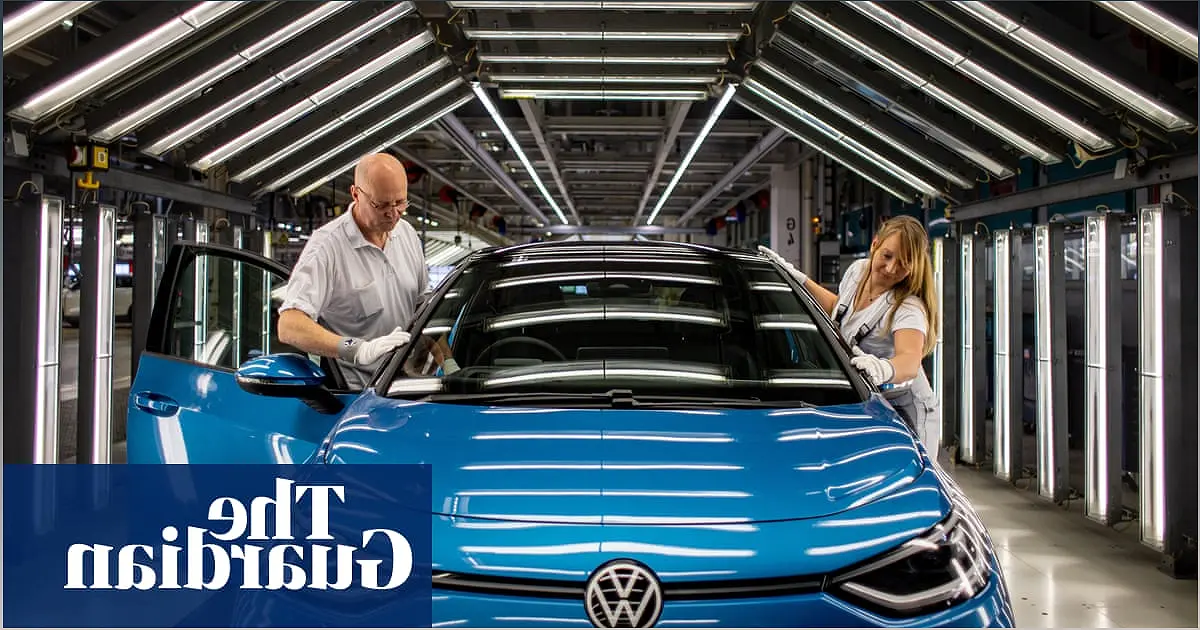The bosses of Europe’s largest carmakers have united in urging the president of the European Commission, Ursula von der Leyen, to postpone the introduction of post-Brexit tariffs. These tariffs, scheduled to come into force on 1 January, could have a detrimental impact on EU electric vehicle production. In a letter coordinated by the European Automobile Manufacturers’ Association, the carmakers highlight the need for a three-year delay to avoid the sudden imposition of 10% tariffs. Let's delve into the reasons behind this call for postponement and the potential consequences for the European electric vehicle industry.
The Impact of Post-Brexit Tariffs on EU Electric Vehicle Production
Understand the potential consequences of the post-Brexit tariffs on EU electric vehicle production.
The introduction of post-Brexit tariffs on electric vehicles could have a significant impact on EU electric vehicle production. The 10% tariffs, scheduled to be imposed on 1 January, pose a threat to the competitiveness of European electric vehicle manufacturers. This subheading explores the potential consequences of these tariffs and the challenges faced by the industry.
Carmakers' Call for a Delay: Protecting European Electric Vehicle Manufacturing
Discover why European car manufacturers are urging for a delay in the implementation of post-Brexit tariffs.
Thirteen major car manufacturers, including Renault, Mercedes-Benz, and Volvo, have joined forces to call for a delay in the implementation of post-Brexit tariffs. This subheading delves into the reasons behind their united front and highlights the importance of protecting European electric vehicle manufacturing.
The carmakers argue that the current "rules of origin" are unachievable and would have a direct impact on the competitiveness of EU electric vehicle manufacturing. They propose a three-year delay to allow for a smoother transition and to avoid the sudden imposition of tariffs that could harm the industry.
The Need for Battery Sourcing: Impact on Electric Vehicle Trade
Explore the requirement for battery sourcing and its implications on electric vehicle trade between the UK and the EU.
The post-Brexit deal between the UK and the EU includes a requirement for car manufacturers to source batteries from within the EU to avoid 10% tariffs on exported vehicles. This subheading examines the need for battery sourcing and its impact on electric vehicle trade.
About 90% of electric cars exported between the UK and the EU would be affected by these rules, while petrol and diesel cars would be exempt. This has raised concerns among environmental campaigners who argue that the focus should be on promoting cleaner transportation as a whole, rather than favoring specific technologies.
The carmakers believe that these rules could benefit Chinese manufacturers, who are seeking to gain a larger share of the European market. This shift could potentially threaten jobs in Europe and disrupt the growth of the electric vehicle industry.
The Role of Gigafactories: Addressing Battery Supply Imbalance
Learn about the role of gigafactories in addressing the battery supply imbalance and supporting the growth of the European electric vehicle industry.
To address the battery supply imbalance, several gigafactories are under construction across Europe. This subheading explores the role of these gigafactories in supporting the growth of the European electric vehicle industry.
Europe's share of the global electric vehicle industry is expected to double by 2035, and the establishment of gigafactories is a crucial step towards achieving this growth. These factories, including planned plants in the UK and Germany, aim to boost battery production within Europe and reduce dependence on external suppliers.
However, the current timeline for the introduction of post-Brexit tariffs poses a challenge as these gigafactories are not yet operational. A delay in the implementation of tariffs would provide the necessary breathing space for these factories to come online and ensure a smoother transition for the industry.
Conclusion
The call from Europe's largest carmakers to delay the introduction of post-Brexit tariffs on electric vehicles highlights the potential impact on EU electric vehicle production. These tariffs could pose a threat to the competitiveness of European manufacturers and hinder the growth of the electric vehicle industry.
By urging for a three-year delay, the carmakers aim to protect European electric vehicle manufacturing and provide the necessary time for gigafactories to address the battery supply imbalance. This delay would allow for a smoother transition and ensure a more sustainable future for the industry.
FQA
How would the post-Brexit tariffs affect EU electric vehicle production?
The post-Brexit tariffs, if implemented, could have a significant impact on EU electric vehicle production. The 10% tariffs would make European electric vehicles less competitive and potentially lead to a loss of market share.
Why are carmakers calling for a delay in the implementation of post-Brexit tariffs?
Carmakers are calling for a delay to protect European electric vehicle manufacturing. They argue that the current "rules of origin" are unachievable and that a delay would provide a smoother transition and avoid the sudden imposition of tariffs.
What is the role of gigafactories in the European electric vehicle industry?
Gigafactories play a crucial role in addressing the battery supply imbalance and supporting the growth of the European electric vehicle industry. These factories aim to boost battery production within Europe and reduce dependence on external suppliers.

